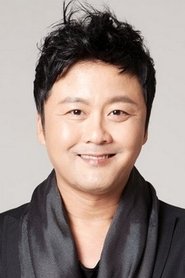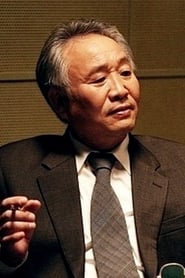The drawing of Yobi, The Five Tailed Fox is widely criticized as being of a high standard, but there are reviews that the story and direction were insufficient. In particular, since the voice actor was played by a celebrity rather than a professional voice actor in the production, there are many likes and dislikes that come with this. Such celebrity voice acting has been frequently used in animated film production, and it is often aimed at the effect of 'star marketing'. In fact, Son Ye-jin, who voiced as Yobi, appeared in the promotional media of Yobi, The Five Tailed Fox and promoted it.
There are also criticisms that the work was overly influenced by Studio Ghibli. In fact, the production company Sunwoo Entertainment is aiming for Korea's Ghibli, and director Lee Sung-kang said in an interview that he was impressed by My Neighbor Totoro. However, he said in an interview that creation can be quoted and imitated in many places, and that it is important to have a self-identity only for the fundamentals. This winter, the Korean animation industry set a significant record.
Director Kim Cheong-gi's 'Robot Taekwon-V' and director Lee Sung-Gang's 'Yobi, The Five Tailed Fox', which were digitally restored and re-released after 31 years, mobilized more than 680,000 and 450,000 viewers, respectively, surpassing 1 million viewers.
The Korean animation industry, which had been stagnant due to Hollywood's 3D animation and Japanese animation led by Hayao Miyazaki, seems to have regained more confidence thanks to the achievements of the two films.
In particular, director Lee Sung-Gang's promotion of 'Yobi, The Five Tailed Fox', which did not rely on the nostalgia of fathers in their 40s, once again confirmed the potential for the development of creative animation in Korea. This is because it has set the third-highest box office record of all time among Korean original animation films released so far.
Director Lee Sung-Gang has already established international fame by becoming the first Korean to win the Grand Prize for Feature Animation at the Annecy Animation Festival in France for "My beautiful Girl, Mari," which was released in 2002. His second feature-length animation, 'Yobi, The Five Tailed Fox', is a work with a strong Korean sentiment based on Korean folk tales. We met director Lee Sung-kang, who left half success and half disappointment with 'Yobi, The Five Tailed Fox', in late February to hear his thoughts on the work and Korean animation in general.
To be honest, I have regrets that I wish I had heard more."
-'Yobi, The Five Tailed Fox' mobilized 450,000 viewers. How do you feel?
Depending on which angle you look at, it can be a good result or a disappointing one. To be honest, I wanted to hear more. The idea of 'regrettable' is more dominant. A film that cost 2.9 billion won to produce needs about 1 million people to break even. Judging from the number of visitors, I hope that people will pay more attention to it."
-'Taekwon-V' and 'Yobi, The Five Tailed Fox', which were released in winter, combined to surpass 1 million viewers, which is the long-cherished goal of Korean animation.
"That's a good thing. I think it had a good influence on my future plans. The reason 'Taekwon-V' did well was that it appealed to fathers in their 40s, and it worked well. In particular, I think it showed the identity of fathers in their 40s now. It seems that the heroic story that fathers in their 40s want to tell their children and 'Taekwon-V' matched. I think it will have a good effect on other animations."
-I heard that you planned an animation that you wanted to show to your daughter.
"When I was planning 'Yobi', my daughter was the age of Yobi. At that time, I took a lot of reference to the actions and words of the children. It's both silly and naïve. She looks like a fox and sometimes swears without thinking. I think that's how I was described as a girl at the age of ten. My daughter's reaction when she saw the work was, in a word, 'interesting.'"
There are kids who are bullied.
"Yobi who appears as the main character is in a similar situation to bullying. Yobi is actually a bully. It's not a fox, it's not a person, and it's not like that. Considering Yobi's situation, I thought it would be right to set the children as similar bullies. It is not that there is something abnormal and that is the case with a disabled child. Children who are intentionally excluded from the community and are not universally accepted with the personalities of a friend. In that aspect, there is an aspect that Yobi should meet."
-The natural scenery is quite lyrical.
"Such a scene touches my heart. It is natural to be in an inhumane landscape. Nature is the background in Yobi, The Five Tailed Fox. The aesthetic value of Korea is naturalness. It's not something that is processed or anything like that, but the beauty of Korea, which appears subtly. I wanted people to appreciate those things in 'Yobi, The Five Tailed Fox.'"
I thought the bus scene was a light quote"
-It has been pointed out that it copied Hayao Miyazaki's "My Neighbor Totoro."
"It was probably the scene where the bus fell. At first, I thought it would be a Owl bus. I thought it was an impressive work that I had seen in my 100 years of life. I thought I was taking that lightly and quoting it, but the staff stopped me. Quotes from movies that impressed me. There are many people who take such factors too seriously. I think it's because there are a lot of Japanese anime enthusiasts. Creation can be quoted and imitated in many places anyway. It is important to have one's own identity only in the fundamentals."
The character of 'Yobi, The Five Tailed Fox' was stronger than 'My Beautiful Girl, Mari'.
"As I worked on my work all the time, I made 'My Beautiful Girl, Mari' and changed my story, mainly focusing on the characters. My Beautiful Girl, Mari' is actually situation-oriented. For people to empathize and do that, it has to be completely character-oriented. Since I was planning a work targeting elementary school students, I decided to make as many interesting characters as possible."
-There are many positive reviews about Son Ye-jin's voice acting.
"The setting of 'Yobi' is a girl who has lived for 100 years. At first, I thought about using a young talent. In fact, I investigated some voices. There is a part where the children's voices are a bit difficult. So I chose adults. Personally, I think it was okay for the voice actor to do it, but if you look at the composition of the characters in 'Fox Rain', there are unrealistic characters and realistic parts. I thought they should be properly balanced with each other. Son Ye-jin did a very good job of digesting the voice of Yeo Woo-bi, who is both realistic and unrealistic."
The cartoons that children watch should be very honest"
-Currently, there are many Japanese animations on Korean airwaves and cable.
"The best animation for our children to watch is made by Korean animation artists. There is a point that Japanese and American anime are aiming for. There is an ideology that the country has. The same is true of Japan and the collectivist United States. Such things are subtly contagious. The cartoons that children watch should be very honest and express the pure aspects of the people as much as possible. In fact, it is something that adults should take responsibility for their children and protect them culturally."
-Do you have any plans to work on an anime series that will be aired on the airwaves?
"If the opportunity is good, we can do it. It doesn't really matter. There is no difference in level from theater animation. If you watch "Run Hani" or "Young Simi" that are sometimes aired on cable, it is an anime with a great charisma that is more than "Can't stop Changu". The characters are also very unique. Even though those things are so great, I feel sad that they could be loved a little more. If I were to do an anime series for the airwaves, I would like to make a high-artistic animation based on the legends of Korea as a series. We need to deal with the legends and stories of our country more properly."
-Hollywood is characterized by 3D animation, and Japanese animation such as Ghibli is characterized by 2D. Where do you think Korean animation will go?
"In the future, 3D will be the mainstream. The traditional method of 2D animation is too labor-intensive and inefficient. 3D is a natural technological advancement, so it is expected that the flow of animation will shift in that direction."
- In the case of 3D animation, technological advances overwhelm the imagination unique to animation.
"This is one of the things I worry about a lot while thinking about animation. In particular, realistic 3D anime stand out. Technological progress is the criterion for judging works. I don't think those things are the original creative characteristics of anime. If you remember an anime that you enjoyed watching a lot in the past, it is very silly and there are parts that are neglected."
"I ask people who hold other types of anime in Europe, and works like 'Princess Princess' are successful works due to the characteristics of the anime itself. Rather than constantly focusing on how advanced our techniques are or how good we are at using computers, we should come up with works that make use of the imagination of animation like 'Princess Princess.'"
We need to create an environment where we can animate short films"
-What is the most necessary thing for Korean animation to take a leap forward?
"In the animation industry, there are people who say that Korean animation will explode if there is an animation that is commercially excellent in terms of technology and action like 'Shuri,' but I think there should be more animations like 'My Neighbor Yamadas' that can expand the base. It is important that many manga-like animations such as Isao Takahata's "Yamadas" are made with a small budget. I hope that the animation industry will actively try to make a lot of small and good works with that money, rather than spending 10 billion dollars to make a very commercial anime."
Since the early 80s, Korea's own theatrical animation has disappeared. Companies that do OEM in Japan and the United States have become more stable. In the 90s, I became more reflective on that aspect and became more aware of creative animation. There are not many feature animation directors now, but there are a lot of people who want to become feature film directors. The energy that such people have is the springboard for future development. I would be grateful if you could pay a little more attention to that and create a good environment for short films."
-What do you think of the one-source multi-use strategy of animation?
"Additional businesses other than movies are just additional businesses. Animation must be a complete work from a cinematic point of view. After that's done, you have to try something extra. Wasn't the failure of 'Wonderful Days' due to the fact that the budget was too high in terms of not enough people enjoying anime? The budget should have been reduced and made more unique. Wasn't the big budget a burden? It shouldn't come out too much like a gamble."
-What made you start animating?
"I watched a Russian animated short and an animation made by Bradley Backs in Canada. Rather than simply being influenced by those works, I thought that they were worth watching and animating. Before that, I thought of anime as a childish cartoon movie. I thought it was only for a short time when I was young. Looking at such artistic works, I thought it was something I could do as a creator."
Didn't you major in psychology?
"That's right. However, he lived as a painter. I used to run a studio, draw works, and hold exhibitions, just like painters often do. Of course, it wasn't a major. I think that studying art in college means learning something that is standardized, so I chose psychology, which is the most attractive among the humanities."
-Lastly, what advice would you give to juniors who want to become animation directors?
"It's important to keep doing it without getting tired. There are not many opportunities to direct animation. However, I know that there are many juniors who dream of this. In the end, I think you just have to be persistent."





